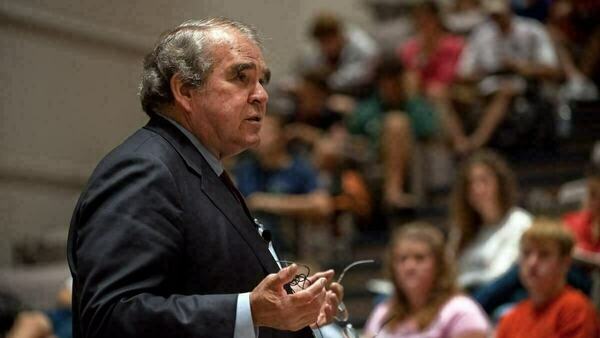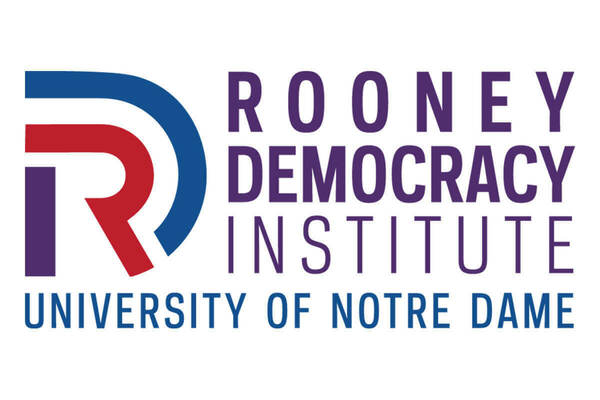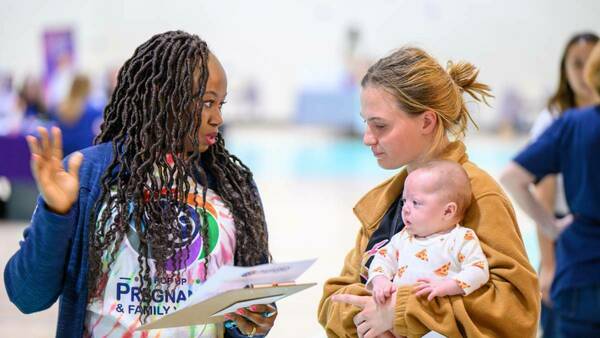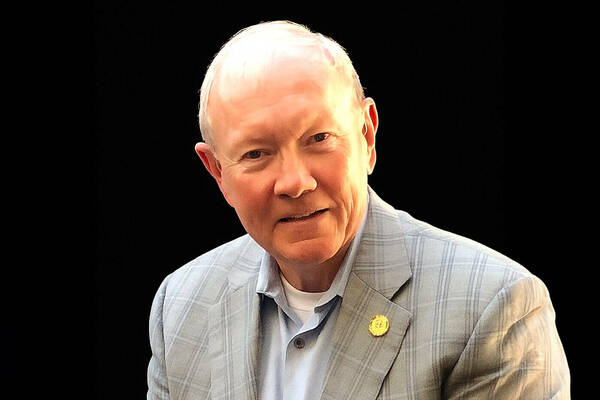Notre Dame literacy research can improve learning outcomes and fight global poverty

A new study by a team of University of Notre Dame researchers makes a significant contribution to understanding the factors that influence how young elementary school students respond to reading interventions in fragile and low-income contexts.
The study, published in the Comparative Education Review, evaluated an early-grade literacy intervention in Catholic schools in Haiti. The study has important implications for addressing educational inequities and improving learning outcomes to create opportunity and lift millions of children globally out of poverty.
“This research brings greater attention to questions of educational equity in the acquisition of foundational skills,” said lead author TJ D’Agostino, assistant professor of the practice with the Pulte Institute for Global Development, part of the University of Notre Dame’s Keough School of Global Affairs. “Which populations are being well served, which can we serve better, and how do we accomplish that? These findings can help guide future research and policy to expand literacy rates in low- and middle-income countries.”
Past research has shown that achieving reading comprehension by the end of second grade is crucial to progressing in school, which impacts future life opportunities, D’Agostino said. Some studies suggest achieving universal literacy could reduce global poverty by more than 10 percent.
Schools participating in the study received specialized teacher training as well as a curriculum in Haitian Creole and French that included a collated library. The curriculum included time for teachers to read aloud to students as well as time for students to read on their own. A group of coaches regularly visited participating schools to share best practices and evaluate what worked.
The study identified several factors that affected outcomes, including:
-
Instructional time (which suffered in some schools because of high rates of student and teacher absenteeism)
-
Curriculum uptake (whether teachers adhered to the new curriculum or instead mixed and matched it with more familiar resources)
-
School leadership (which was crucial to protecting time for learning, encouraging teacher buy-in to the program and providing extra support for students)
Researchers found that rural schools faced particular challenges, D’Agostino said, since they were more remote, received fewer coaching visits, tended to serve more marginalized populations and often experienced higher rates of student absenteeism.
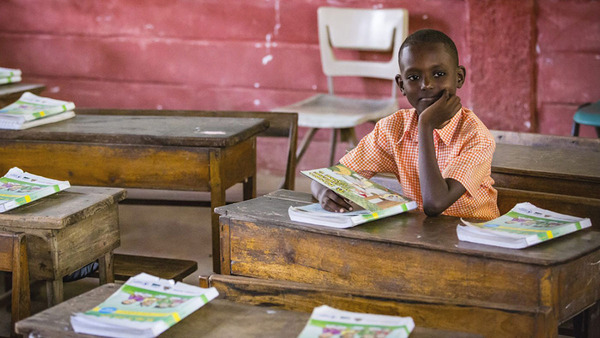
D’Agostino worked with fellow co-authors Danice Brown Guzmán and Paul Perrin of the Keough School’s Pulte Institute; Anasthasie Liberiste-Osirus, a training and technical assistance consultant who previously worked with Notre Dame’s Global Center for the Development of the Whole Child (GC-DWC), part of the University’s Institute for Educational Initiatives; and Kate Schuenke-Lucien of the GC-DWC.
The literacy intervention and research to evaluate its impact was supported by the GC-DWC Haiti in collaboration with Catholic Relief Services, the Catholic Church in Haiti, USAID, the W.K. Kellogg Foundation and an anonymous foundation. The program served more than 100,000 first- through third-grade students in nearly 350 schools between 2016 and 2020.
Ultimately, the study helped the Notre Dame team identify questions for future research, the co-authors said, and can inform future literacy interventions by organizations such as USAID, which is the largest bilateral donor of basic education assistance and works in more than 50 countries.
“Improving literacy skills in the school environment is an important part of a broader, deeper set of outcomes needed to address poverty,” Schuenke-Lucien said, noting that researchers sought to engage students holistically using home and church resources as well.
D’Agostino agreed. “It is deeply rewarding to contribute to programs that help people in marginalized communities develop life-changing skills,” he said, “and it is energizing to be a part of Notre Dame’s larger work to fight poverty.”
Originally published by Josh Stowe at keough.nd.edu on Feb. 21.
Contact: Tracy DeStazio, associate director of media relations, 574-631-9958 or tdestazi@nd.edu
Latest ND NewsWire
- Notre Dame to award 2026 Evangelium Vitae Medal to Wm. David Solomon, founding director of the de Nicola Center for Ethics and CultureThe de Nicola Center for Ethics and Culture at the University of Notre Dame announced that the late Wm. David Solomon, associate professor of philosophy emeritus and founding director of the center, has been named the recipient of the 15th annual Notre Dame Evangelium Vitae Medal, the nation’s most important award for heroes of the pro-life movement. The medal will be presented to Solomon’s family at a special Mass and dinner May 1, 2026, at Notre Dame.
- Francis and Kathleen Rooney make transformative gift for Notre Dame institute focused on democracy research and educationFrancis and Kathleen Rooney of Washington, D.C., and Naples, Florida, have made a gift to the University of Notre Dame to endow an institute in the College of Arts & Letters committed to the preservation of American democracy through research, teaching and public engagement. The Rooney Democracy Institute, formerly known as the Rooney Center for the Study of American Democracy, aims to advance Notre Dame’s role as a national and global leader in democracy scholarship and as a convener of bipartisan conversations about the future of democracy.
- Researchers deconstruct chikungunya outbreaks to improve prediction and vaccine developmentThe symptoms come on quickly — acute fever, followed by debilitating joint pain that can last for months. Though rarely fatal, the chikungunya virus, a mosquito-borne illness, can be particularly severe for high-risk individuals, including newborns and older adults. While the virus is common…
- Eck Institute investigator to strengthen postpartum care for Indiana mothersYenupini Joyce Adams, associate professor of the practice and maternal health lead for the Eck Institute for Global Health at the University of Notre Dame, is partnering with Beacon Health System to pilot a new, first-of-its-kind postpartum care model in the South Bend-Elkhart community.
- Gen. Martin Dempsey to speak at Notre Dame Forum event on ‘Hope, Global Stability and the Role of the United States’Gen. Martin Dempsey, the retired 18th chairman of the Joint Chiefs of Staff, will join University President Rev. Robert A. Dowd, C.S.C., for a fireside chat at 4 p.m. Friday (Oct. 10), as part of the 2025-26 Notre Dame Forum. The discussion, titled “Hope, Global Stability and the Role of the United States,” is part of the exploration of this year’s Notre Dame Forum theme, “Cultivating Hope.” It will take place in Rooms 215/216 of McKenna Hall and will also be livestreamed. The event is free and open to the public.
- University of Notre Dame joins the Global Coalition of Ukrainian StudiesThe University of Notre Dame has joined the Global Coalition of Ukrainian Studies after signing a memorandum of cooperation, formalized Sept. 24, at the Ukrainian Institute of America in New York City. Notre Dame joined four other American institutions that were also publicly welcomed to the coalition at this event: Arizona State University, Columbia University, Manor College and the Shevchenko Scientific Society.








